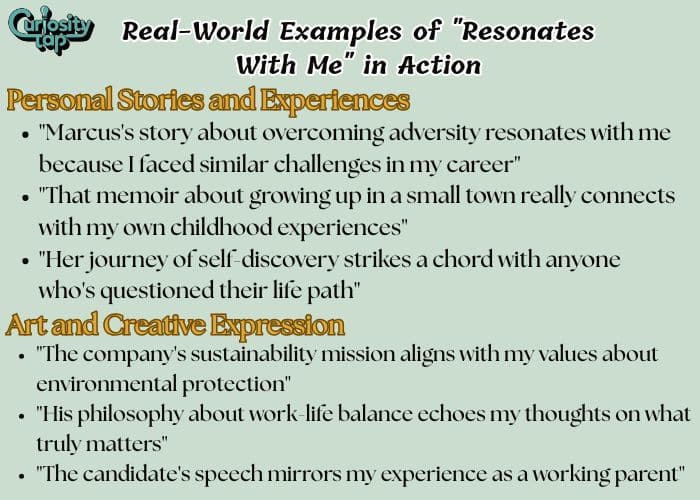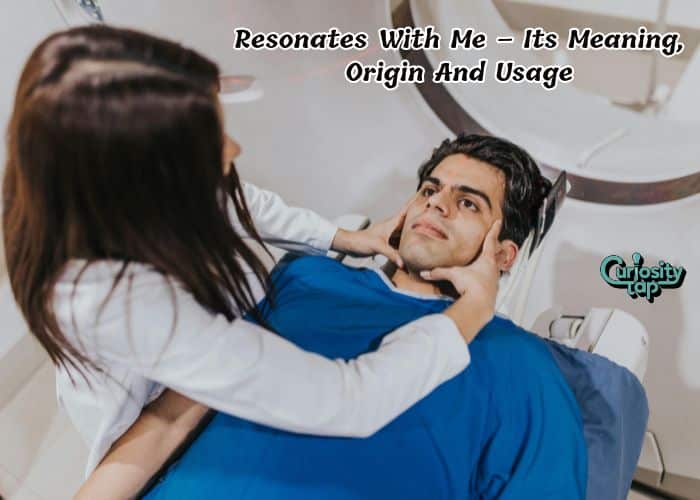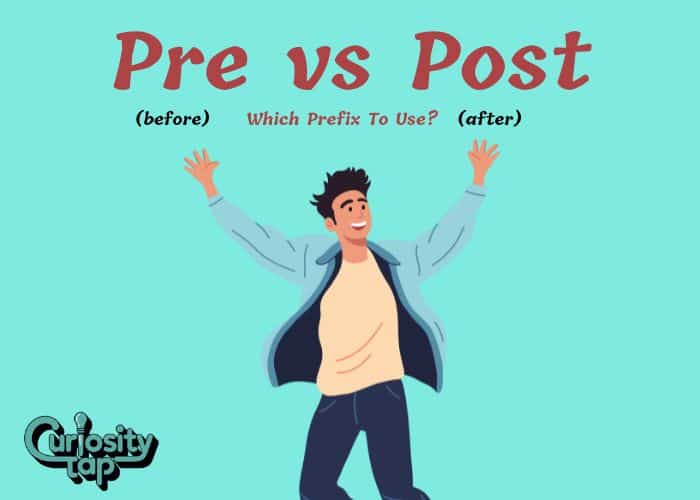Have you ever read a book that made you feel like the author was speaking directly to your soul? Or heard a song that perfectly captured your emotions in a way you couldn’t put into words?
When something resonates with me, it creates that magical moment of connection where you think, “Finally, someone gets it!”
This powerful phrase has become a cornerstone of modern communication, especially in our digital age where we constantly share, react, and express our feelings about everything from social media posts to life-changing philosophies.
But what exactly does it mean when something resonates with you, and why has this expression become so universally understood?
Understanding the depth and versatility of “resonates with me” can transform how you express your thoughts and connect with others.
Whether you’re writing a heartfelt response to a friend’s story or describing why a particular cause speaks to you, this phrase captures something profound about human connection and shared experience.
What Does “Resonates With Me” Actually Mean?
When you say something “resonates with me,” you’re describing a deep personal connection that goes beyond simple agreement or understanding. It’s the difference between thinking “that’s nice” and feeling “that’s exactly how I feel!”
The phrase indicates that an idea, story, message, or experience has struck a chord within you on multiple levels:
- Emotional resonance: The content touches your heart and evokes genuine feelings
- Intellectual agreement: The concepts align with your beliefs and worldview
- Personal relevance: The message mirrors your experience or situation
- Lasting impact: The idea stays with you and influences your thoughts
For example, when Sarah reads about climate change activism, she might say, “This article resonates with me because I’ve always felt passionate about environmental protection.”
The phrase captures not just her agreement with the content, but her emotional investment and personal connection to the cause.
Also Read: Scrap or Scrape: What Is The difference?
The Fascinating Origins of “Resonates With Me”
The word “resonance” comes from the Latin “resonare,” meaning “to sound again” or “to echo.” Originally used in physics to describe how sound waves amplify when they match a natural frequency, the term beautifully evolved into describing human connections.
In physics, resonance occurs when an external force matches an object’s natural vibration frequency, creating powerful amplification. Think of how an opera singer can shatter a wine glass by hitting just the right note that’s physical resonance in action.
This scientific concept perfectly translates to human experience. When something resonates with you, it’s hitting your emotional or intellectual “frequency,” creating that powerful amplification of feeling and understanding.
The phrase gained popularity in the 1960s and 1970s during the counterculture movement, when people sought authentic connections and meaningful experiences. It became a way to express that something rings true on a deeper level than mere intellectual agreement.

Real-World Examples of “Resonates With Me” in Action
Understanding how “resonates with me” works in practice helps you use it more effectively and recognize when others are expressing deep connection:
Personal Stories and Experiences
- “Marcus’s story about overcoming adversity resonates with me because I faced similar challenges in my career”
- “That memoir about growing up in a small town really connects with my own childhood experiences”
- “Her journey of self-discovery strikes a chord with anyone who’s questioned their life path”
Art and Creative Expression
- “This painting speaks to me because it captures the loneliness I felt during college”
- “The lyrics hit home because they describe exactly how I felt after my breakup”
- “That documentary touches my heart because it shows the struggles my community faces”
Values and Beliefs
- “The company’s sustainability mission aligns with my values about environmental protection”
- “His philosophy about work-life balance echoes my thoughts on what truly matters”
- “The candidate’s speech mirrors my experience as a working parent”
Social and Cultural Messages
- “The movement for social justice resonates with me because I’ve witnessed inequality firsthand”
- “That article about mental health rings true to my own struggles with anxiety”
- “The book’s message about authenticity reflects my journey toward self-acceptance”
Creative Alternatives to “Resonates With Me”
While “resonates with me” is powerful, varying your language keeps your communication fresh and engaging. Here are natural alternatives that convey similar meaning:
| Emotional Connection | Intellectual Agreement | Personal Relevance |
| Strikes a chord | Rings true | Mirrors my experience |
| Touches my heart | Clicks with me | Reflects my journey |
| Hits home | Sits well with me | Echoes my thoughts |
| Moves me deeply | Aligns with my beliefs | Speaks to my soul |
Casual and Conversational Options
- “I vibe with that” (informal, popular with younger audiences)
- “I feel you” (empathetic, shows understanding)
- “That’s so me” (personal identification)
- “I get that on a deep level” (emphasizes profound understanding)
Professional and Formal Contexts
- “I find truth in that perspective“
- “That approach aligns with my professional experience“
- “The concept connects with my understanding of the field“
- “I share that sentiment“
Psychology Behind Why Things Resonate With Us
Understanding the psychological mechanisms behind resonance can help you create more meaningful connections with others and recognize when something truly speaks to you:
Shared values form the foundation of resonance. When content reflects your core beliefs about fairness, authenticity, or personal growth, it creates immediate connection. Jessica might say environmental activism resonates with her because sustainability aligns with her values about protecting future generations.
Personal experience amplifies resonance. Stories that mirror your journey feel especially powerful because they validate your struggles and triumphs. A entrepreneur’s tale of overcoming failure strikes a chord with anyone who’s faced similar setbacks.
Emotional validation plays a crucial role. When someone articulates feelings you’ve struggled to express, it creates profound relief and connection. That’s why poetry, music, and personal essays often resonate deeply they give voice to universal human experiences.
When and How to Use “Resonates With Me” Effectively
Timing and context matter when expressing that something resonates with you. Here’s expert guidance on making the most impact:
Appropriate Situations
- Responding to personal stories or vulnerable sharing
- Discussing values, beliefs, or life philosophies
- Reacting to art, literature, or creative expression
- Expressing support for causes or movements
- Giving feedback on ideas or proposals
What to Avoid
- Overusing the phrase (it loses impact with repetition)
- Using it for trivial matters (“This sandwich resonates with me“)
- Applying it to purely factual information without emotional component
- Using it insincerely just to seem agreeable
Professional Communication Tips
In workplace settings, consider more specific alternatives:
- “This approach aligns with our company values“
- “The strategy connects with our market research findings“
- “The proposal reflects our team’s core strengths“
Bonus Tip: The Power of Explaining Your Resonance
Here’s a surprising insight that most people miss: simply saying something resonates with you is just the beginning. The real power comes from explaining why it creates that connection.
Instead of just saying “That story resonates with me,” try: “That story strikes a chord because it shows how perseverance can transform failure into success something I experienced when I changed careers at forty.”
This approach:
- Creates deeper conversation and connection
- Helps others understand your perspective
- Makes your response more memorable and meaningful
- Invites others to share their own resonant experiences
Expert advice: When something truly resonates with you, take a moment to identify the specific elements that create that connection. Is it the emotional honesty? The shared struggle? The hopeful message? Understanding your own resonance patterns helps you communicate more authentically and find content that truly speaks to your soul.
Frequently Asked Questions
What’s the difference between “resonates with me” and “I agree with”?
“Resonates with me” describes a deep personal connection that involves emotion, personal experience, and lasting impact. “I agree with” is more intellectual and surface-level. When something resonates with you, it touches your heart and aligns with your values, not just your thoughts.
Can “resonates with me” be used in professional settings?
Yes, but choose your context carefully. It works well when discussing company values, team approaches, or client relationships. However, in formal reports or technical discussions, more specific language like “aligns with our objectives” or “reflects our findings” might be more appropriate.
Is saying “that resonates” without “with me” grammatically correct?
Absolutely! “That resonates” is grammatically correct and often more concise in conversation. Both “that resonates with me” and “that resonates” convey the same meaning, with the shorter version being more natural in casual dialogue.
How can I tell if something genuinely resonates or if I’m just agreeing?
Genuine resonance typically involves emotional response, personal connection, and lasting impact. If you find yourself thinking about the content later, feeling moved by it, or seeing connections to your own life, it’s likely true resonance rather than simple agreement.
Conclusion
In our fast-paced digital world, finding something that truly resonates with you is like discovering a hidden treasure. It’s that rare moment when words, ideas, or experiences strike a chord so deeply that they become part of your story.
Whether you’re sharing your own thoughts or responding to others, remember that genuine resonance creates bridges between hearts and minds.
The next time something speaks to your soul, don’t just acknowledge it explore it, share it, and let it guide you toward deeper connections and authentic conversations. After all, in a world full of noise, the things that resonate with us are the ones that truly matter.
Read more knowledgeable blogs on Curiosity Tap
Is this article helpful?

Jackson Pearson is a passionate educator and language enthusiast behind the blog Jackson Pearson. With years of experience in teaching and writing, he specializes in simplifying complex grammar rules, breaking down tricky vocabulary, and crafting learning guides that are both engaging and practical. His mission is to help readers boost their English skills whether they’re beginners or brushing up for fluency. Through every article, Jackson brings clarity, structure, and a spark of curiosity to the world of English learning.



